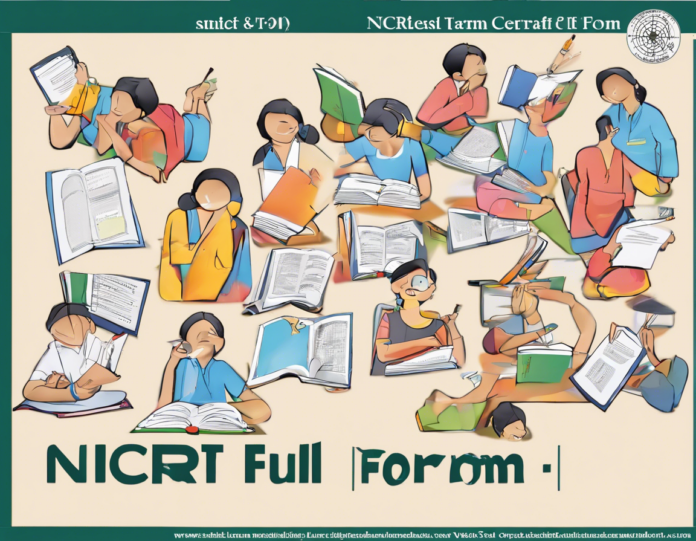Introduction:
NCERT, which stands for the National Council of Educational Research and Training, is an autonomous organization of the Government of India that was established in 1961. The primary objective of NCERT is to assist and advise the central and state governments on policies and programs for qualitative improvement in school education. It conducts research in areas related to school education, develops educational resources, and provides training programs for teachers. NCERT is also responsible for producing and publishing textbooks for school students across the country.
Role of NCERT in Indian Education System:
1. Curriculum Development:
NCERT plays a crucial role in developing the national curriculum framework which serves as a guideline for schools in India. The organization designs and updates the curriculum to ensure that it is in line with the latest educational trends and meets the needs of students.
2. Textbook Publication:
One of the key functions of NCERT is to publish textbooks for different subjects and classes. These textbooks are used by schools affiliated with the Central Board of Secondary Education (CBSE) as well as many state boards. NCERT textbooks are known for their quality content, clarity, and adherence to the prescribed curriculum.
3. Teacher Training:
NCERT conducts various training programs and workshops for teachers to enhance their teaching skills and keep them updated with the latest teaching methodologies. These programs aim to improve the overall quality of teaching in schools.
4. Educational Research:
NCERT conducts research in various areas of education to identify challenges and opportunities for improvement. The organization’s research findings help in formulating policies and programs that contribute to the enhancement of the education system in India.
5. Educational Resources:
Apart from textbooks, NCERT develops a wide range of educational resources such as audio-visual materials, online courses, and teaching aids. These resources are designed to supplement classroom teaching and provide students with additional learning support.
Benefits of NCERT Textbooks:
1. Standardized Content:
NCERT textbooks are designed by experts in the field and follow a standardized format. This ensures that students across the country receive consistent and accurate information irrespective of their location.
2. Clarity and Simplicity:
The language used in NCERT textbooks is simple and easy to understand, making complex concepts accessible to students. The books are structured in a way that aids comprehension and retention of information.
3. Comprehensive Coverage:
NCERT textbooks cover a wide range of topics and concepts, providing students with a comprehensive understanding of the subject. The books are structured to help students build a strong foundation in each subject.
4. Alignment with Competitive Exams:
Many competitive exams in India, such as JEE, NEET, and UPSC, are based on the NCERT syllabus. Using NCERT textbooks can help students prepare effectively for these exams as the content is closely aligned with the examination pattern.
Challenges Faced by NCERT:
1. Curriculum Overload:
One of the challenges faced by NCERT is the issue of curriculum overload. The syllabus prescribed by the organization is vast, leading to rote learning and a lack of emphasis on critical thinking and practical skills.
2. Technological Integration:
With the advancement of technology, there is a need to integrate digital resources and online learning platforms into the educational system. NCERT faces the challenge of adapting to new technologies while ensuring equal access to quality education for all students.
3. Teacher Training and Capacity Building:
NCERT conducts teacher training programs, but there is a need for continuous capacity building to enhance the quality of teaching in schools. Ensuring that teachers are equipped with the necessary skills and knowledge is essential for improving the overall education system.
4. Regional Disparities:
India is a diverse country with regional variations in language, culture, and educational needs. NCERT faces the challenge of catering to these diverse requirements and ensuring that the educational content is relevant and inclusive for students from different regions.
Conclusion:
In conclusion, NCERT plays a pivotal role in shaping the education system in India through its curriculum development, textbook publication, teacher training programs, and educational research. The organization continues to evolve and adapt to meet the changing needs of students and educators in the country. By focusing on quality, accessibility, and relevance, NCERT contributes significantly to the overall improvement of the education sector in India.
Frequently Asked Questions (FAQs):
Q1. Are NCERT textbooks enough for preparing for competitive exams like JEE and NEET?
A1. While NCERT textbooks provide a strong foundation, it is advisable to supplement them with additional study material and practice tests for competitive exam preparation.
Q2. Can students from state boards use NCERT textbooks for their studies?
A2. Yes, students from state boards can use NCERT textbooks as they cover the core concepts prescribed by most educational boards in India.
Q3. Does NCERT offer online courses for students and teachers?
A3. Yes, NCERT provides online courses and resources for students and teachers through its official website and other digital platforms.
Q4. How can schools collaborate with NCERT for teacher training programs?
A4. Schools can reach out to the Regional Institutes of Education (RIEs) under NCERT for information on teacher training programs and workshops.
Q5. Are NCERT textbooks available in regional languages apart from English and Hindi?
A5. Yes, NCERT textbooks are available in regional languages to cater to students from different linguistic backgrounds.






